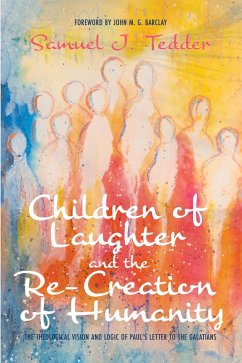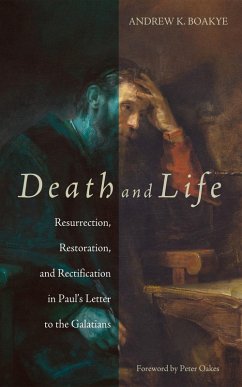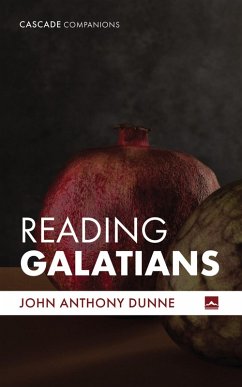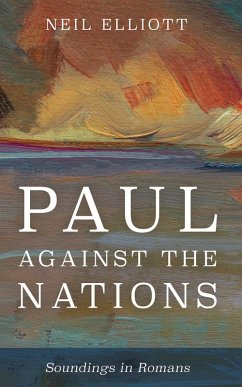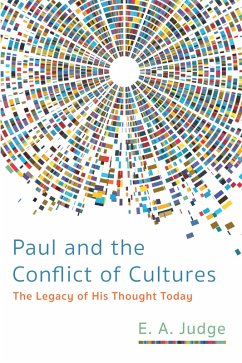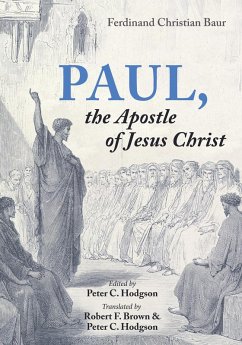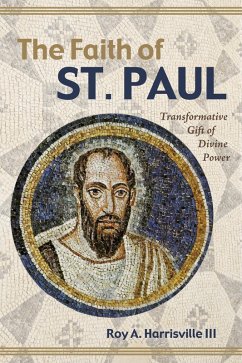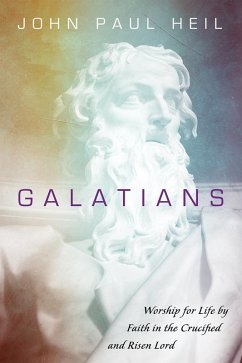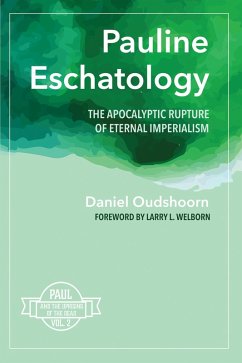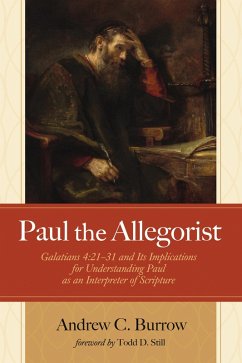
Paul the Allegorist (eBook, ePUB)
Galatians 4:21-31 and Its Implications for Understanding Paul as an Interpreter of Scripture
Versandkostenfrei!
Sofort per Download lieferbar
16,95 €
inkl. MwSt.
Weitere Ausgaben:

PAYBACK Punkte
8 °P sammeln!
In a moment of great crisis, the apostle Paul gave new meanings to characters and events within Genesis 16-21 without completely denying or replacing their prior meanings. This interpretive practice, as found in Galatians 4:21-31, has troubled interpreters of Scripture since the fourth century. This book demonstrates that Paul's practice was allegorical and provides a more precise understanding of his practice by comparing Paul with three roughly contemporary interpreters of Scripture: interpreters who composed the sectarian texts of the Dead Sea Scrolls, the interpreter Philo, and the author ...
In a moment of great crisis, the apostle Paul gave new meanings to characters and events within Genesis 16-21 without completely denying or replacing their prior meanings. This interpretive practice, as found in Galatians 4:21-31, has troubled interpreters of Scripture since the fourth century. This book demonstrates that Paul's practice was allegorical and provides a more precise understanding of his practice by comparing Paul with three roughly contemporary interpreters of Scripture: interpreters who composed the sectarian texts of the Dead Sea Scrolls, the interpreter Philo, and the author of the Epistle of Barnabas. This book identifies Paul's interpretive work, explains how he used his allegorical practice to accomplish it, and reveals the implications of this practice for understanding him as an interpreter of Scripture. It helps resolve a debate ongoing for nearly two millennia by answering the questions, What does Paul do in Galatians 4:21-31, and why does it matter?
Dieser Download kann aus rechtlichen Gründen nur mit Rechnungsadresse in A, D ausgeliefert werden.




